The Variety and Grade Standard of Yunnan small Coffee is Yunnan Coffee beans belong to Fine Coffee
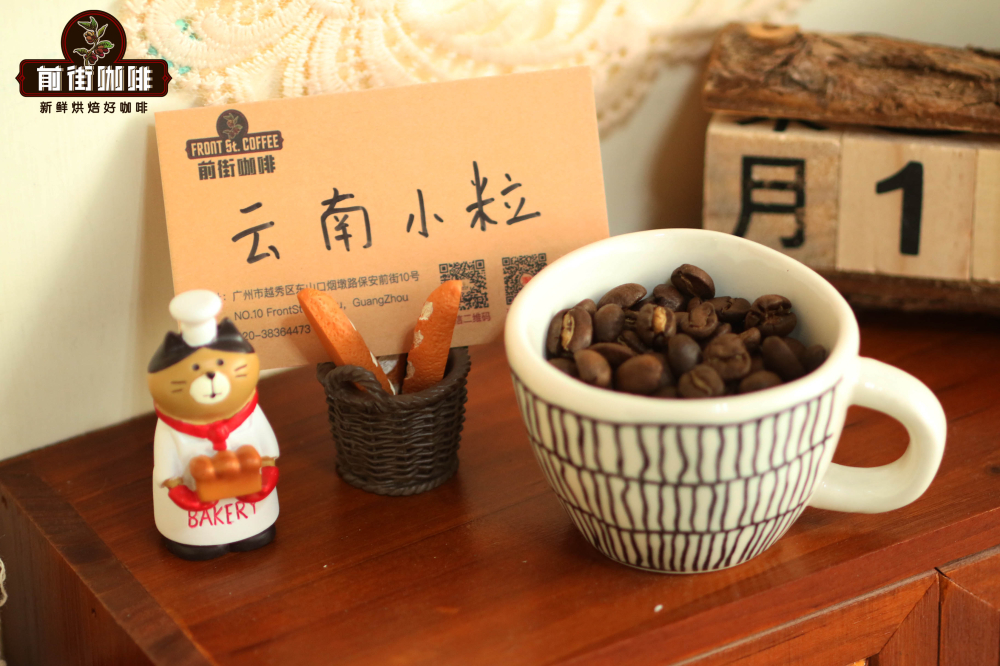
Yunnan coffee as our own coffee beans, Qianjie thinks it is very necessary to have a try, so Qianjie also adds washed Yunnan small grains of coffee to the rations bean series to give everyone a taste of the region. There are also friends who ask Qianjie whether Yunnan coffee belongs to boutique coffee after all. Qianjie needs to start with the development of Yunnan coffee.
Yunnan coffee in the past
Yunnan coffee is also known as Yunnan small grain, because the coffee grown in Yunnan is Arabica, which belongs to small seed coffee beans, which is different from the medium grain robusta coffee beans grown in Hainan.
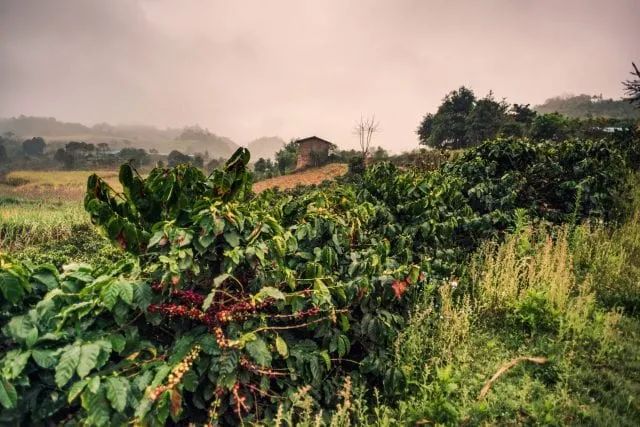
Since Tian Deneng, a French missionary, introduced the first coffee tree in Zhugula Village, Binchuan, Yunnan Province in 1904, the cultivation of coffee in Yunnan began. The real commercial purpose of planting was in 1937, when Liang Jinshan, a patriotic overseas Chinese, brought back coffee seeds from Burma and began to raise seedlings near Lujiang Dam in Baoshan. In 1952, after the founding of New China, coffee cultivation was formally developed on a large scale under the leadership of Ma Guojin experts from the Academy of Agricultural Sciences, and the coffee was used for supply to the Soviet Union.
Yunnan coffee really entered the international market since Nestl é established a domestic branch in 1988, which not only introduced Katim's high-yield and disease-resistant varieties, but also promised to buy Yunnan coffee beans at the American futures price at that time as raw materials. Subsequently, Starbucks, McDonnell and other brands have also set up factories in Yunnan to buy raw beans, these measures have further expanded the planting area of Yunnan coffee, but also increased the enthusiasm of coffee farmers.
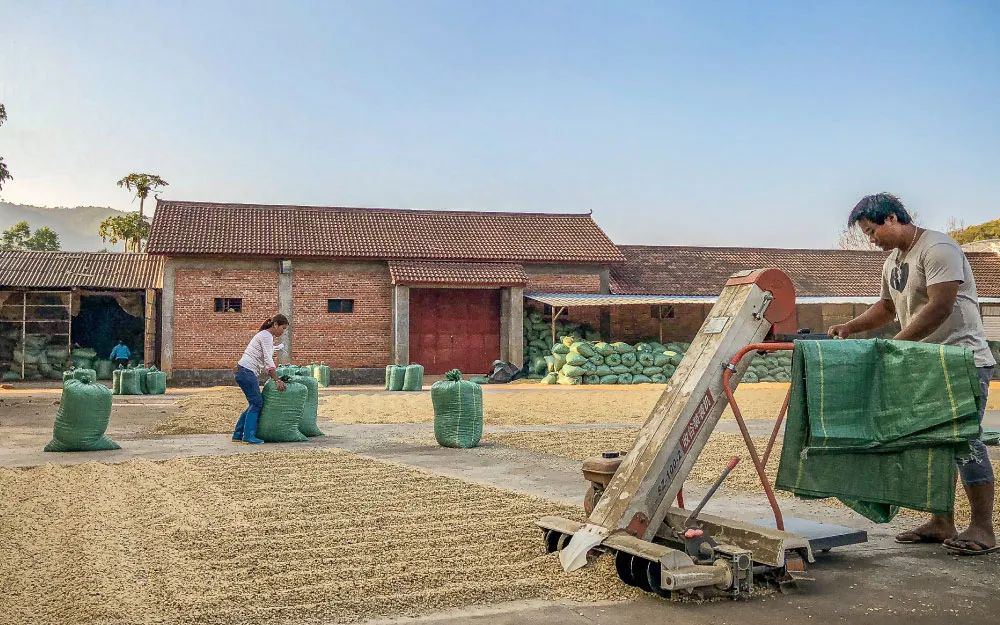
Present situation of Coffee in Yunnan
Under the commercial influence of Nestl é, most of the coffee varieties grown in Yunnan are mainly Katim. Katim is derived from the cross between Caturra and Timor, carrying the Robusta gene of 1max 4, which improves the disease resistance of coffee and ensures its yield, but it is not as good as pure Arabica in flavor. Coupled with the fact that farmers are accustomed to using rough raw bean processing, the quality of the coffee produced is not high, and more of it goes to the commodity market as a raw material for instant coffee or cheap beans. So when we compare Yunnan coffee beans with mature Ethiopian coffee, Panamanian coffee and so on, there will of course be a certain gap.
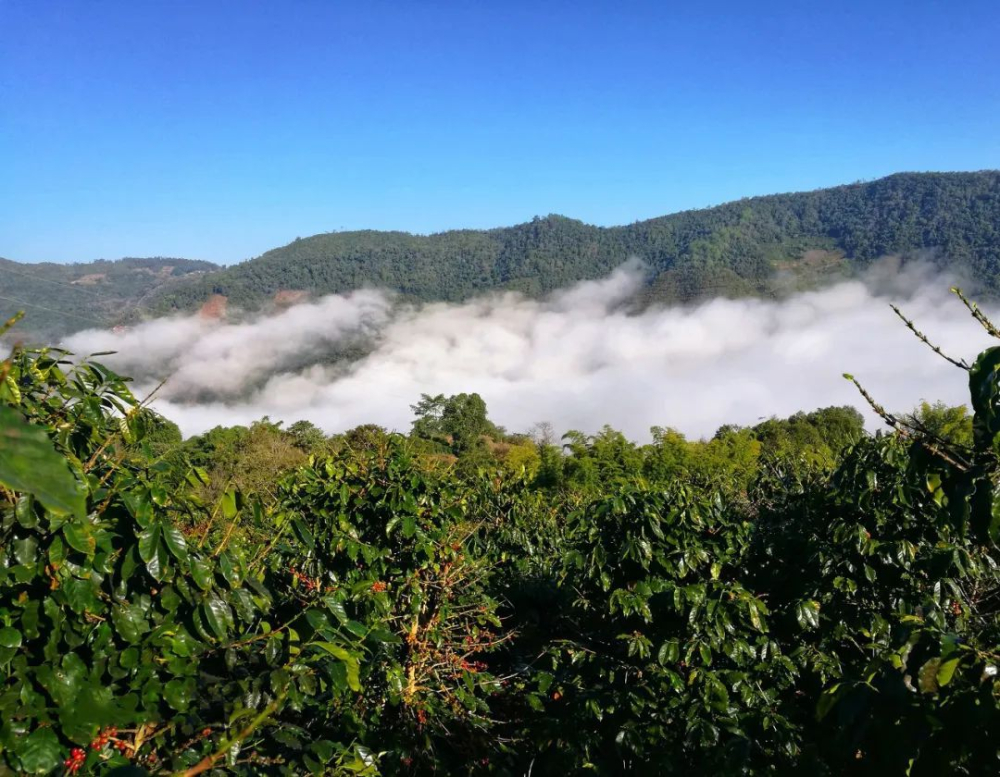
Of course, Yunnan also has a good flavor of high-quality coffee beans, but only a small part of Yunnan coffee beans. Therefore, back to the question in Qianjie, Yunnan certainly has boutique coffee, but not all of them belong to the boutique level. Generally speaking, coffee makers still need to work hard to keep up with the international level of boutique coffee.
Grading system of Coffee in Yunnan
Compared with other mature coffee producing areas, the coffee grading system in Yunnan is not perfect. Commonly used to screen, color, cleanliness, odor, moisture content and other standards for classification.
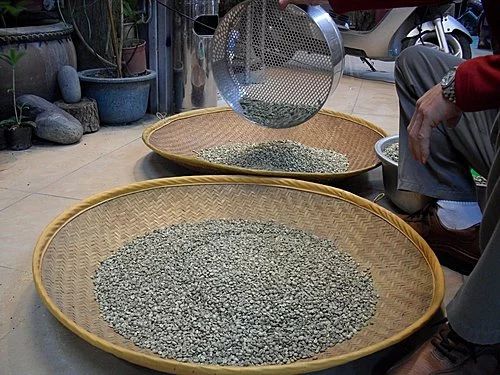
It is divided into five levels according to sieve holes of 6.5, 6.0, 5.5 and 5.0 mm.
First class: more than 6.5 mm, full and complete particles
Second class: 6.0-6.4 mm, plump, more uniform
Class 3: 5.3-5.9 mm, fuller, slightly less uniform
Level 4: 5.0-5.4 mm, with incomplete rice, accounting for more than 75% of the total.
Level 5: less than 5.0mm, incomplete rice, complete accounted for more than 30%
Color: with luster, light blue, light green, light white is better. Dark brown and dark orange are secondary:
First class: light blue, light green, light white, light yellow, uniform color
Secondary: light blue, light green, light white, light yellow, slightly poor color
Grade 3: light blue, light green, light white, light yellow, worse color
Level 4: slightly yellow, a small amount of brown
Level 5: mixed colors and flowers
Cleanliness: no impurities or a small amount of impurities are better:
First class: remove more than 70% of the silver skin, no impurities
Level 2: remove more than 65% of the silver skin, no impurities
Grade 3: remove more than 60% of the silver skin, no impurities
Smell: fermentation goes bad, light red and brown are sour, sour or other peculiar smell is not good.
Moisture: the water content does not exceed 12%.
In order to maximize the interests of farmers and enterprises and further enhance the voice and competitiveness of Yunnan coffee in the international market, Pu'er City has established Yunnan International Coffee Trading Center (Yunnan intermational Coffee Exchange, referred to as YCE). In 2019, YCE combined the system of SCA of boutique Coffee Association and CQI of Coffee quality Association to plan a new grading system for Yunnan small granule coffee with traditional washing treatment. Coffee farmers all graded and quoted prices according to this standard.
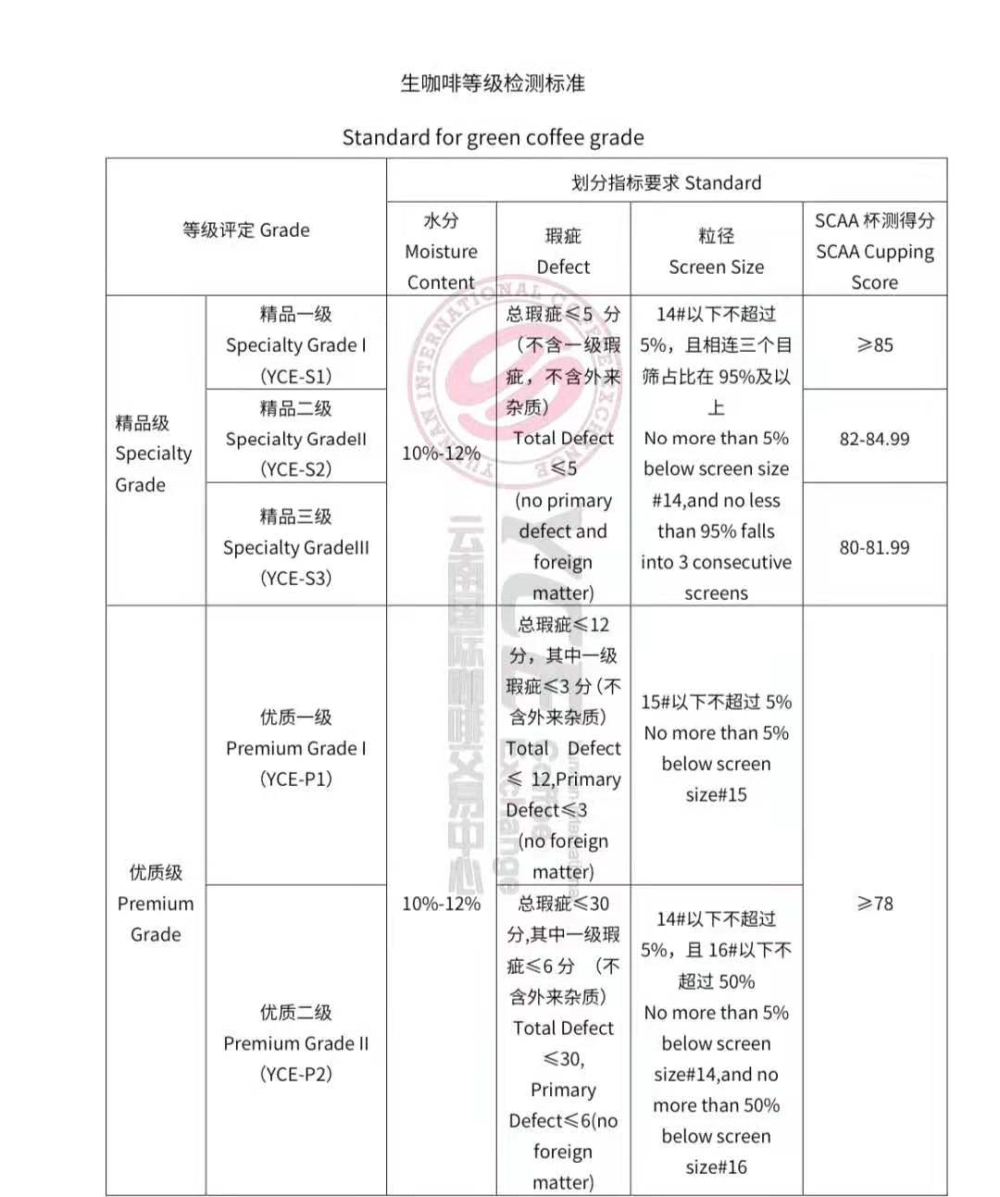
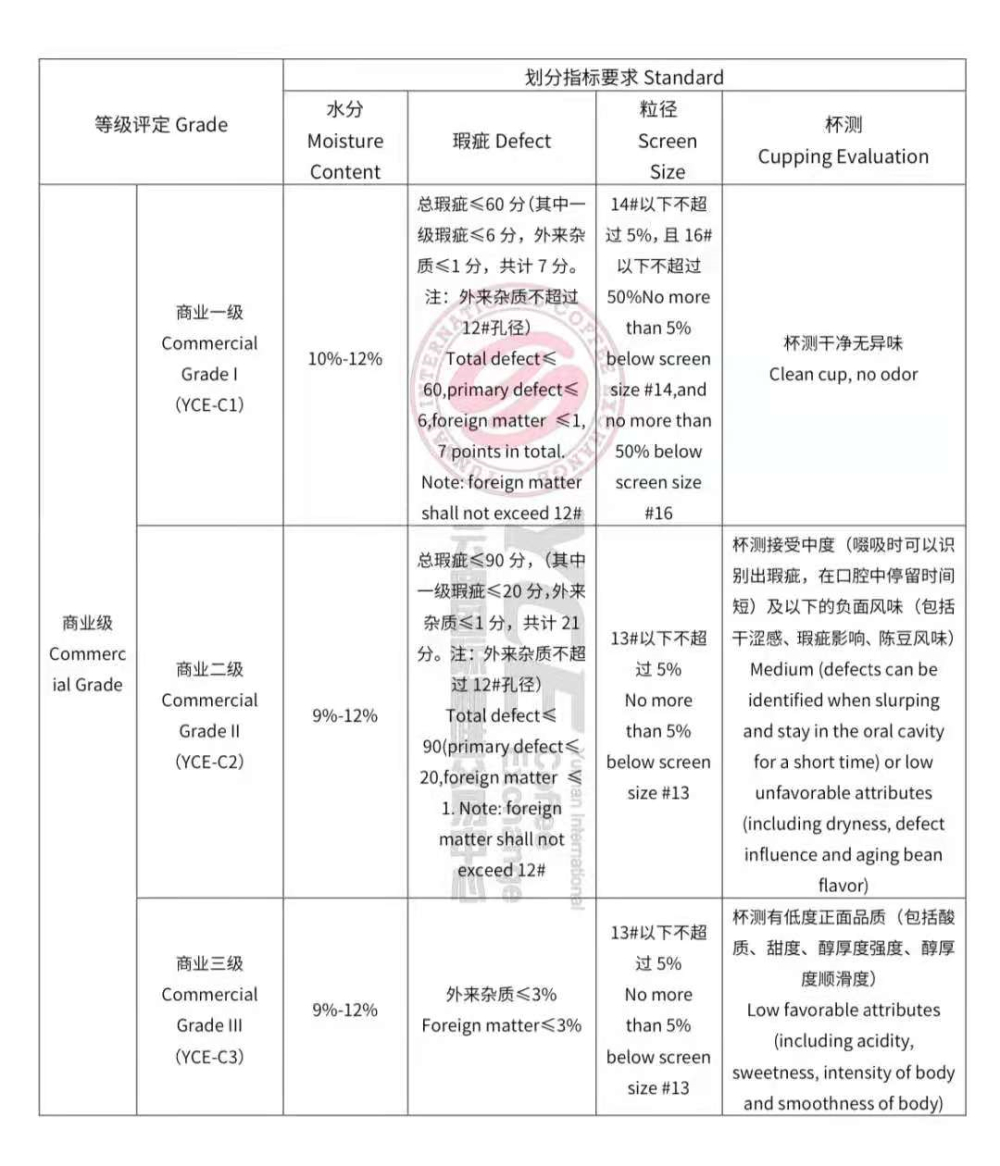
Recommendation of Yunnan small grain boutique coffee
In order to make the continuous progress and development of Yunnan coffee, coffee people need to understand the basic flavor of Yunnan coffee in order to help improve the quality of coffee. Therefore, the characteristics of Qianjie selected Yunnan small grain coffee treated with water as the representative of Yunnan facade. Qianjie believes that in the step of washing, the raw coffee beans remove the pulp layer before drying, and the taste highlights the aroma of the coffee itself, which is what we call the "Yunnan flavor".
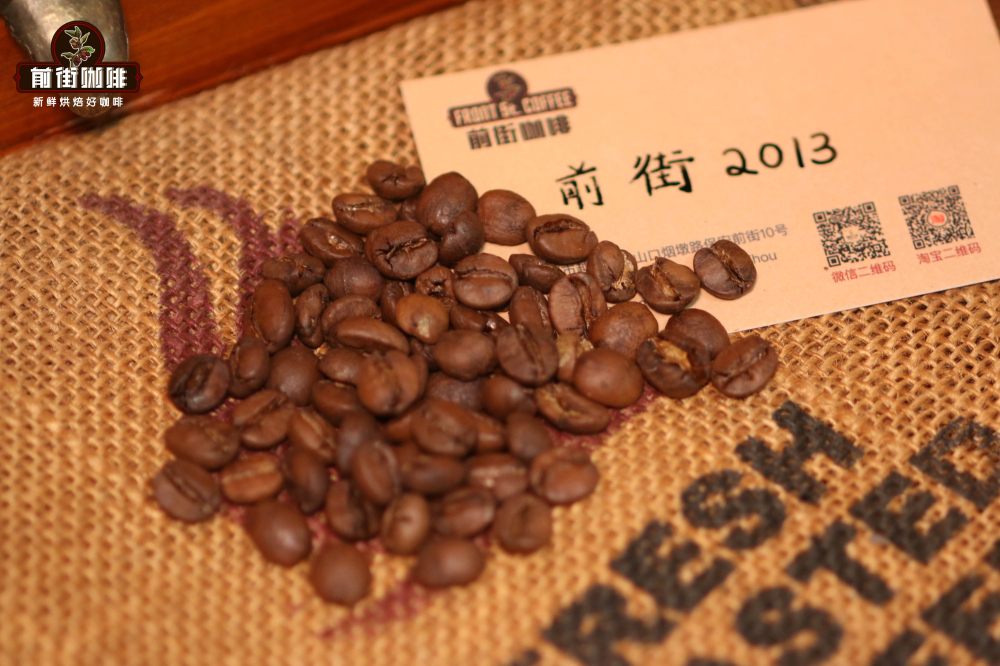
In the Yunnan coffee column on the Qianjie bean list, another sun-cured coffee bean named after us, "Qianjie 2013". Among them, Qianjie has invested in Yunnan producing areas as early as many years ago, began to grow coffee in Lincang, Yunnan Province in 2013, and chose the ancient and pure Arabica variety-iron pickup. Due to the poor disease resistance of tin cards and the need to put a lot of effort into management, the first harvest was finally achieved in 2020, which was treated by solarization.
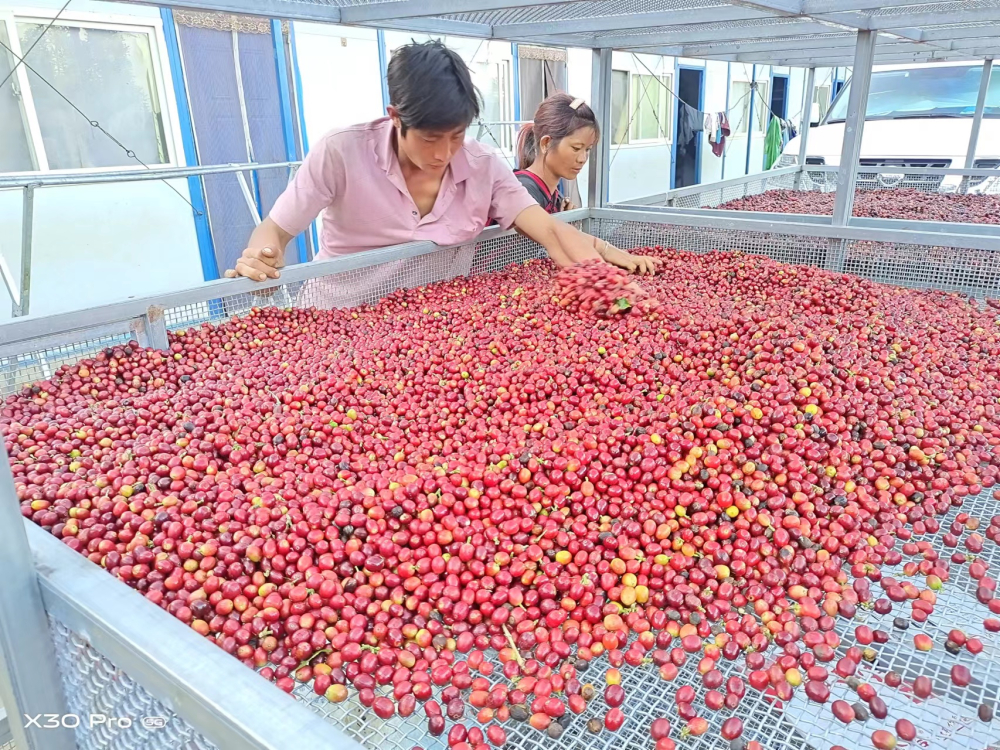
Qianjie believes that the flavor of Yunnan coffee should be neutral, that is, it has acidity and mellow bitterness, so the baking degree of Qianjie chose moderate roasting. Through the cup test, this Qianjie 2013 shows the aroma of plum, dried fruit, chocolate and nuts, and all kinds of flavors are properly mixed.
The coffee hand in front of the street suggested
Filter cup: hario v60
Powder content: 15g
Water temperature: 90 degrees Celsius
Degree of grinding: pass rate of No. 20 screen 75%
Gouache ratio: 1:15
Three-stage water injection: wet the powder bed with twice as much water as coffee powder to form a drum and steam for 30s, then fill the small water from the inside to the outer circle to 125g, wait for the powder bed to drop to half of the filter cup, and continue to inject the same fine water into the third section to 225g, until all the coffee liquid has been filtered and remove the filter cup for about 2 minutes.
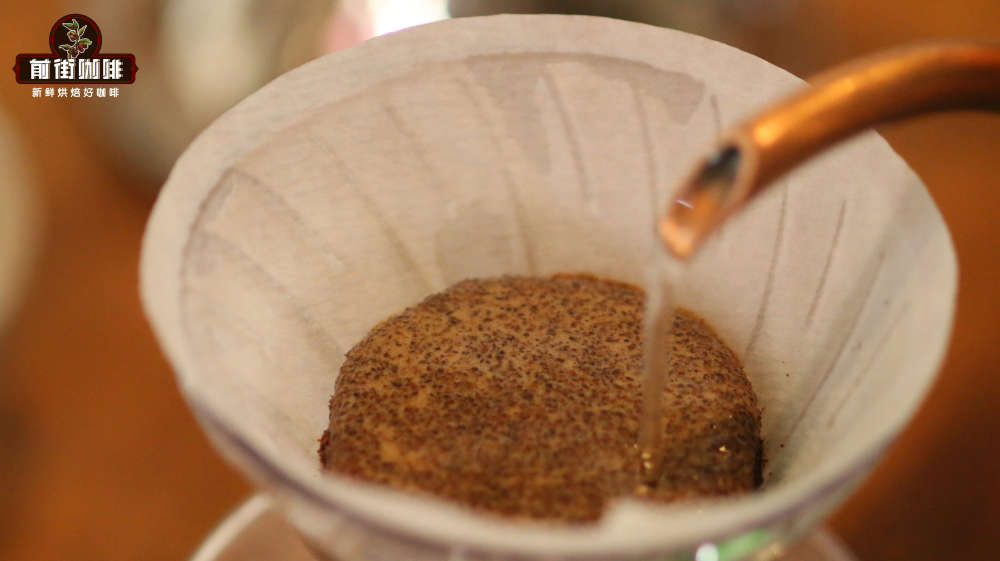
Professional coffee knowledge exchange more coffee bean information please follow the coffee workshop (Wechat official account cafe_style)
For more boutique coffee beans, please add private Qianjie coffee on Wechat. WeChat account: qjcoffeex
Important Notice :
前街咖啡 FrontStreet Coffee has moved to new addredd:
FrontStreet Coffee Address: 315,Donghua East Road,GuangZhou
Tel:020 38364473
- Prev
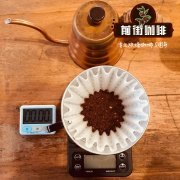
A Hybrid of Katim Kadura and Robusta with High Yield and Strong Disease Resistance in Baoshan, Yunnan Province
Professional coffee knowledge exchange More coffee bean information Please pay attention to coffee workshop (Weixin Official Accounts cafe_style) Yunnan Baoshan Arabica coffee varieties all the way It seems that most of Yunnan is now planted Katim, this variety is Arabica bourbon branch Kadura and Robusta mixed species, the reason for planting this variety is because Katim owns Rob
- Next
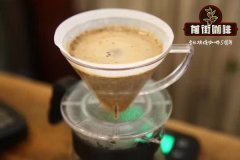
Yunnan small katim katim species development process Yunnan fine katim coffee
Professional coffee knowledge exchange More coffee bean information Please pay attention to coffee workshop (Weixin Official Accounts cafe_style) In the late 1980s, Nestle began to introduce Katim coffee in Simao area of Yunnan Province (now Pu 'er City). Since then, the coffee planting area in China has increased gradually, and the quality has been greatly improved in continuous exploration. Planting areas are mainly distributed in Lincang, Baoshan and Simao
Related
- Detailed explanation of Jadeite planting Land in Panamanian Jadeite Manor introduction to the grading system of Jadeite competitive bidding, Red bid, Green bid and Rose Summer
- Story of Coffee planting in Brenka region of Costa Rica Stonehenge Manor anaerobic heavy honey treatment of flavor mouth
- What's on the barrel of Blue Mountain Coffee beans?
- Can American coffee also pull flowers? How to use hot American style to pull out a good-looking pattern?
- Can you make a cold extract with coffee beans? What is the right proportion for cold-extracted coffee formula?
- Indonesian PWN Gold Mandrine Coffee Origin Features Flavor How to Chong? Mandolin coffee is American.
- A brief introduction to the flavor characteristics of Brazilian yellow bourbon coffee beans
- What is the effect of different water quality on the flavor of cold-extracted coffee? What kind of water is best for brewing coffee?
- Why do you think of Rose Summer whenever you mention Panamanian coffee?
- Introduction to the characteristics of authentic blue mountain coffee bean producing areas? What is the CIB Coffee Authority in Jamaica?

